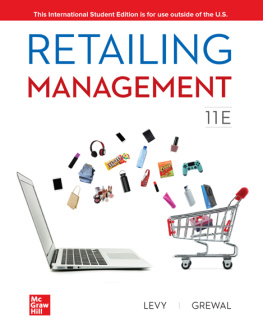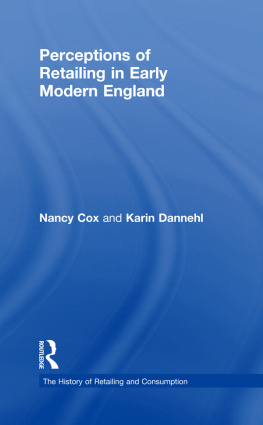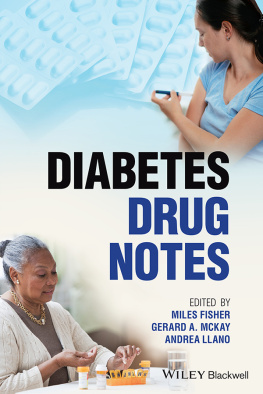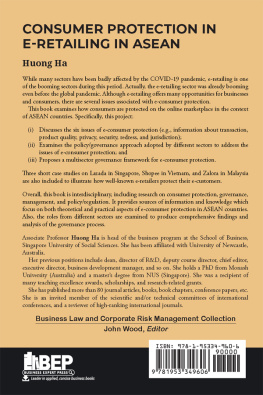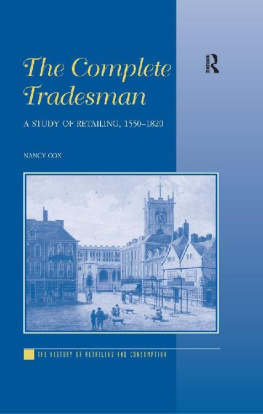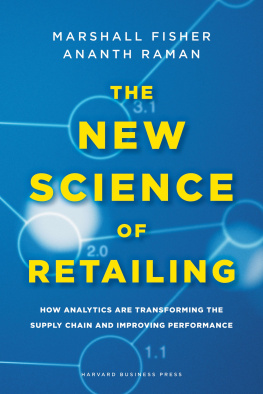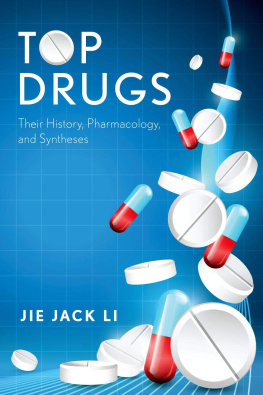First published 2006 by Ashgate Publishing
Published 2016 by Routledge
2 Park Square, Milton Park, Abingdon, Oxon OX14 4RN
711 Third Avenue, New York, NY 10017, USA
Routledge is an imprint of the Taylor & Francis Group, an informa business
Copyright 2006 Louise Hill Curth
Louise Hill Curth has asserted her moral right under the Copyright, Designs and Patents Act, 1988, to be identified as the editor of this work.
All rights reserved. No part of this book may be reprinted or reproduced or utilised in any form or by any electronic, mechanical, or other means, now known or hereafter invented, including photocopying and recording, or in any information storage or retrieval system, without permission in writing from the publishers.
Notice:
Product or corporate names may be trademarks or registered trademarks, and are used only for identification and explanation without intent to infringe.
British Library Cataloguing in Publication Data
From physick to pharmacology : five hundred years of
British drug retailing
1.Pharmacy Great Britain History 2.Pharmacists Great Britain History 3.Pharmaceutical industry Great Britain History
I.Curth, Louise
338.4761510941
Library of Congress Cataloging-in-Publication Data
From physick to pharmacology : five hundred years of British drug retailing / edited by Louise Curth.
p. cm. (The history of retailing and consumption)
Includes bibliographical references and index.
ISBN 0-7546-3597-X (alk. paper)
1. Pharmaceutical industryGreat BritainHistory. 2. Retail tradeGreat BritainHistory. 3. PharmacyGreat BritainHistory. I. Curth, Louise. II. Series.
[DNLM: 1. Drug IndustryhistoryGreat Britain. 2. PharmacyhistoryGreat Britain. QV 711 FA1 F931 2006]
HD9667.5.F75 2006
381.4561510941dc22
2005037689
ISBN 9780754635970 (hbk)
Stuart Anderson is Senior Lecturer in Organisational Behaviour and Teaching Programme Director at the London School of Hygiene and Tropical Medicine. He holds a degree in Pharmacy, and practised as a pharmacist, first in the pharmaceutical industry and subsequently in NHS hospitals, later obtaining an MA in Manpower Studies and a PhD in Organisational Behaviour from the University of London. His principal research interests are organizational studies in health care, and his publications include comparative studies of public and private provision of health care, performance measurement, prescribing at the interface between hospital and general practice, as well as the social history of pharmacy.
Louise Hill Curth is Senior Lecturer in Health Studies at Bath Spa University. She read marketing for her undergraduate degree, followed by an MA in Early Modern English Social History and a PhD in Early Modern Medical History from the University of London. Her principal research interests are in early modern social history of medicine for humans and animals. Amongst her recent publications are English Almanacs, Astrology & Popular Medicine, 15501700 (Manchester University Press, 2007), A Remedy for his Beast: Animal Health Care in Early Modern Europe, Intersections: Representations of Animals, Yearbook for Early Modern Studies (forthcoming), The Medical Content of English Almanacs, Journal of the History of Medicine and Allied Sciences, 60 (July 2005), pp. 25582, and The Care of the Brute Beast: Animals and the Seventeenth-century Medical Marketplace, The Social History of Medicine, 15(3) (December 2002), pp. 37592. She is currently working on The Care of Brute Beasts: A Social and Cultural Study of Veterinary Medicine in Early Modern England, which will be published by Brill in 2007.
Steve King is Professor of History, Director of the Centre for Health, Medicine and Society and Assistant Dean for Research in the School of Arts and Humanities at Oxford Brookes University. He read history at the University of Kent, and obtained his PhD from the University of Liverpool. His research interests include the early modern history of European industrialization, with a particular focus on demography and family, British and European poverty and welfare, with a particular focus on the regionality of welfare, the administration of relief and the experience of being poor in the period 16001920, medical history of industrial England, the sick poor, the medical marketplace and doctorpatient relationships in the period 16501850, and local history. His most recent publications including S.A. King (ed.), Narratives of the Poor in Eighteenth Century Britain (Pickering and Chatto, 2006), Women, Welfare and Local Politics, 18801920 (Sussex Academic Press, 2005) and It is impossible for our vestry to judge his case into perfection from here: Managing the distance dimensions of poor relief under the old Poor Law, Rural History, 16(2) (2005), pp. 16189.
Hilary Marland is Professor of History and Director of the Centre for the History of Medicine, University of Warwick. She is author of Dangerous Motherhood: Insanity and Childbirth in Victorian Britain (Palgrave-Macmillan, 2004), and has published on nineteenth-century medical practice, the history of midwifery and childbirth, alternative medicine, infant welfare and women and medicine. She is currently working on the politics and practices of health in the workplace, 191574, the water cure in the English Midlands 18841950 and on health advice to young women, 18841939.
Judy Slinn is a Lecturer in the Business School at Oxford Brookes University, where she has been Wellcome Research Fellow on strategic innovation in the UK pharmaceutical industry since 1948. Her published work includes The growth of the pharmaceutical industry, in S. Anderson (ed.), Making Medicines: A Brief History of Pharmacy (Pharmaceutical Press, 2005), pp. 15774; The pharmaceutical industry, in From Victoria to Viagra: 150 Years of Medical Progress (Wellcome Trust, 2003), pp. 424; Innovation at Glaxo and May and Baker: 19451965, History and Technology, 13 (1996), pp. 13347; Research and Development in the UK Pharmaceutical Industry from the Nineteenth Century to the 1960s, in R. Porter and M. Teich (eds), Drugs and Narcotics in History (1996), pp. 16886, and Pharmaceuticals and Health Care: A History of Abbott Laboratories


